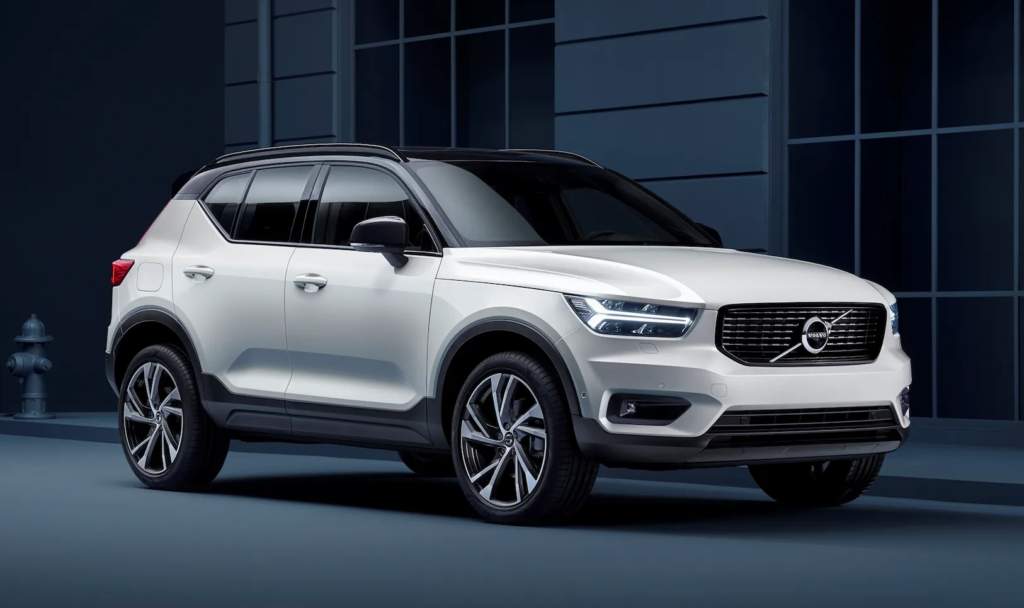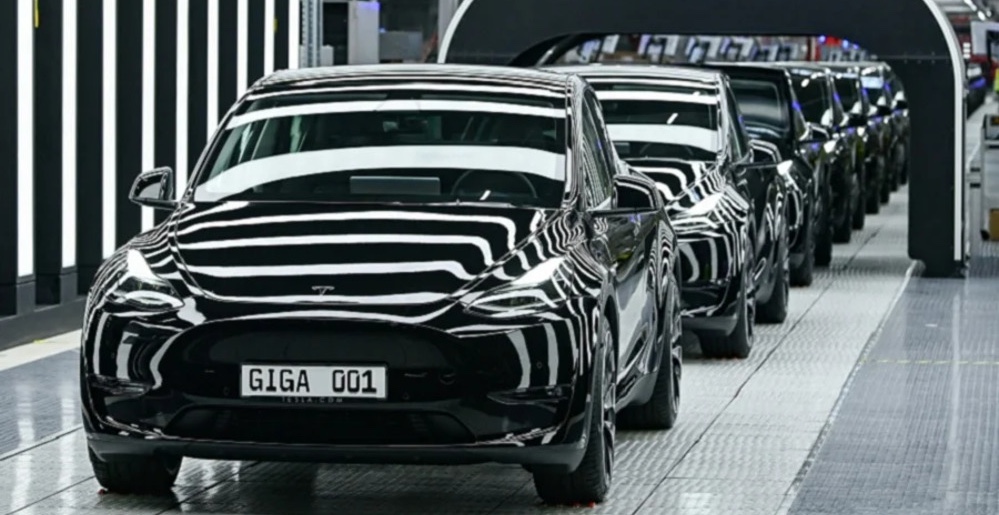In order to achieve the objectives set by the European Union, member states are implementing various initiatives to promote the transition to electric and sustainable mobility.
However, progress varies among countries, primarily due to variations in government incentives and per capita income, among other factors.
In this way, Nordic countries continue to lead the ranking, while the southern ones are positioned at the lowest end.
Despite this, all have demonstrated a clear increase in their share of electric vehicles (EVs) over the past year.
Below, Mobility Portal Europe presents a summary of the registration figures in each country for the year 2023.
Germany
Undoubtedly, registrations in Germany were among the most affected.
This was largely dependent on the reduction of incentives by the federal government, culminating in the complete elimination of the environmental bonus at the end of last year.
Those most affected by the subsidy reduction were plug-in hybrids, totaling 175,724 units sold, marking a decline of 51.5% and representing a share of 6.2%.
In contrast, pure electric vehicles had a share of 18.4% and an increase of 11.4% compared to 2022, totaling 524,219 registrations.
Hybrids totaled 840,304 registrations, a growth of 1.6%, representing 29.5% of the market share, according to figures published by the Kraftfahrt-Bundesamt (KBA).
CO2 emissions from cars increased by 4.9% in 2023, with an average of 114.9 g/km, compared to 109.6 g/km the previous year.
Local brands preferred by Germans in 2024 were Mercedes-Benz, Volkswagen, and BMW, while foreign brands were led by Hyundai, Skoda, and Seat .
Tesla is added to the list in the registrations of pure electric vehicles.
The Netherlands
Last year, sales of new cars increased.
According to official figures from the RAI, BOVAG, and RDC associations, 2023 concluded with a total of new electric vehicle sales reaching 30.8%, out of 369,791 new passenger cars, almost 7.5% more than in 2022.

The best-selling models were the Tesla Model Y, with 13,758 registrations, the Volvo XC40, with 6,342 units sold, and the Peugeot 208, with 5,584 registrations.
They are followed by the Tesla Model 3 with 5,058 sales and the Skoda Enyaq with 4,715.
At this point, the importance of continuing subsidies and tax incentives for EVs is emphasized, as there are special concerns for the period after 2025.
In 2024, around 370,000 cars are expected to be registered, a considerably lower figure than in 2019, for example, the last year before the coronavirus pandemic, when 446,000 new cars were sold.
Norway
The Nordic country stands out as one of the European nations with the highest registrations of eVehicles, capturing more than 80% of the market.
Norway has become a global beacon for the replacement of traditional cars with electric vehicles thanks to incentives.
However, in 2023, this development halted with the introduction of both VAT and weight tax.
Specifically, according to the Norwegian Electric Vehicle Association, in 2023, the proportion of eCars represented 82.4% of new vehicle sales.

This set another record, albeit with only a 3-percentage point increase.
In the top 3 best-sellers, the Tesla Model Y leads with 23,088 sales, followed by the Volkswagen ID.4 with 6,614 units sold, and the Škoda Enyaq with 5,737 registrations.
To achieve the goal of 100% new vehicle sales in 2025, Norway must reach 95% in 2024.
This could be possible now that polluting cars have received more taxes in the state budget for 2024, according to the Secretary-General of the Electric Vehicle Association, Christina Bu.
France
The year 2023 marked a new record for the electrified vehicle market, with a share of 26%.
EVs accounted for more than 17% of car sales for the first time, marking a 47% increase compared to 2022.
Meanwhile, plug-in hybrids captured 9% of the annual market share and experienced a year-on-year growth of 18%.
Thus, one in four cars sold in France in 2023 is plugged into an electrical outlet, according to the report published by the Automotive Platform (PFA).

Currently, Tesla overwhelmingly dominates the eMarket in France.
Following in the rankings are the Chinese Dacia Spring and the MG4.
This is expected to change in 2024 as the government tightens purchase bonuses, and new environmental criteria favor light vehicles produced in Europe.
Foreign-made cars are exempt from the environmental bonus.
Czech Republic
According to the Transport Research Center and Čistá Doprava, in 2023, the Czech Republic registered the highest number of new battery electric vehicles (BEVs) historically.
Of these, 6,640 were passenger cars, 353 were light commercial, 10 were trucks, and 6 were eBuses.
BEVs captured 3% of the market share, and plug-in hybrids accounted for 2.6%.
In passenger cars, Tesla (1,618), Škoda (1,442), and Volkswagen (607) stood out.
Belgium
476,675 new cars were registered in Belgium, according to figures reported by FPS Mobility and the Belgian-Luxembourg Federation of Automobiles and Bicycles (Febiac), a 30% increase compared to 2022.
Of these, almost half are equipped with electric motors, with plug-in hybrids being the majority (21%), ahead of 100% electric cars (19.3%), and hybrids (7.6%).
BMW leads in registrations, followed by Tesla, MG, and BYD.
It is expected that eCars and Chinese competition will revolutionize the Czech car market in 2024.
Italy
Italy has relatively low electric vehicle registration figures compared to other countries in the region.
However, last year’s figures are generally positive.
The electric sector demonstrated a market share of 4.2% compared to 3.7% in 2022, a 34.5% increase in 2023.
While the performance of plug-in hybrids shows a slight growth in registrations of 2.7%.

In the last year, the market was led by the Tesla Model 3 (1,956) and Model Y (703), which accounted for the majority of sales.
It is expected that this market will finally boost in 2024 with the Ecobonus introduced by the Italian government.
This aims to renew the automotive and commercial fleet, as well as promote the sale of zero and low-emission cars.
Sweden
The removal of incentives for electric cars and uncertainty about upcoming political investments create doubt among Swedes considering leaving behind combustion vehicles.
Although registrations increased last year, they did not grow as strongly as in previous years.
According to figures shared by Mobility Sweden, in 2023, eCars represented 39% of sales and plug-in hybrids 21%.
In this way, the former increased by 18%, while the latter lost around 8% compared to 2022.
Tesla led with 20,331 units sold.
Mobility Sweden’s forecasts for 2024 suggest that electrification will stall during the year, and the proportion of electric cars will decrease to 35%.
This is due to very weak demand among private customers and the proportion of EVs in the total order portfolio, along with the absence of control instruments.
Denmark
According to figures published by De Danske Bilimportører, Denmark reached a new record in the automotive fleet in 2023: it has now registered 200,000 electric cars.
In just over a year, they have doubled the number of eVehicles on the roads.
To maintain this pace in 2024, car prices need to remain affordable, and politicians must continue to support this transition.
It is worth noting that Danish electric cars have benefited from tax exemptions for several years.
However, there is a risk of a sales slowdown in the future, as tax deductions will be gradually phased out from 2026, similar to most European countries.
Tesla topped the registration rankings in Denmark.
The Model 3 captured 27,152 registrations, while the Model Y took 26,596.
United Kingdom
The adoption of BEVs reached a record volume in 2023 with almost 50,000 more units and 314,687 new registrations.
In fact, more eVehicles hit the roads than in 2020 and 2021 combined.
Currently, the UK faces many regulatory uncertainties that have plagued the market over the past few months, especially with the last-minute agreement on rules of origin between the UK and the EU.
This avoids tariffs on electric vehicles.
Plug-in hybrids enjoyed a 39.3% increase in registrations, accounting for 7.4% of the market.
Meanwhile, hybrids recorded solid growth, up 27.1%, reaching a market share of 12.6%.
Overall, BEVs represented one in six newly registered cars in 2023, with most purchased by businesses and fleet buyers benefiting from attractive tax incentives.
On the contrary, one in eleven private buyers chose an eCar.
Looking to the new year, the industry is urging the government to support private buyers by halving the VAT on new eVehicles for three years.








